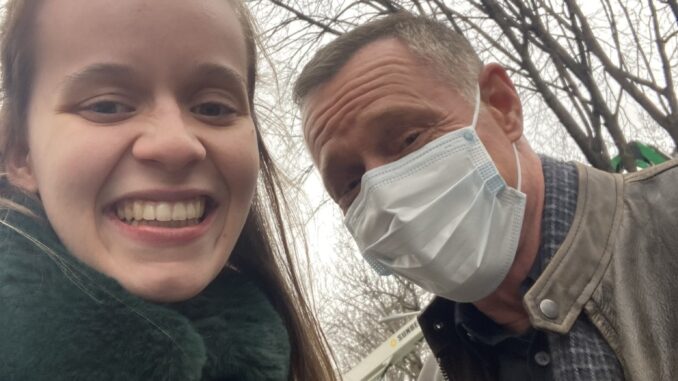
Chicago P.D. gears up for its highly anticipated Season 13, fans are eager to see what lies ahead for the Intelligence Unit—and especially for its brooding and complex leader, Hank Voight. Jason Beghe, the actor who has masterfully portrayed Voight since the series’ inception, recently opened up about what’s coming next for his character, and it’s clear that big changes might finally be on the horizon.
For over a decade, Voight has been defined by his tough exterior, his morally gray decisions, and the emotional weight of the past—particularly the loss of his son, Justin. That tragedy, coupled with countless professional betrayals and personal sacrifices, has shaped Voight into a man who has often chosen justice over protocol, and vengeance over peace. But according to Beghe, Season 13 might mark a turning point.
A Softer Side of Voight?
In a recent interview, Beghe teased that viewers may finally see Voight grappling with the possibility of change. “Voight’s always been a man of action,” Beghe said. “But that doesn’t mean he’s incapable of reflection. He’s starting to ask himself some hard questions—about who he is, what he wants, and whether the way he’s done things for so long still works.”
This emotional introspection, Beghe suggests, will be central to Season 13. While Voight will never completely abandon his edge—nor would fans want him to—there may be moments where the longtime sergeant questions his legacy and the toll his choices have taken on both himself and those around him.
Letting Go of the Past?
The theme of letting go has always lingered in the background of Chicago P.D., especially for Voight. His son’s death continues to haunt him, and his relationships with key figures like Erin Lindsay (Sophia Bush) and Al Olinsky (Elias Koteas) have left emotional scars that still influence his leadership style.
Season 13 may offer a narrative arc that gives Voight the space to finally process this grief. While the show isn’t shying away from intense cases and gritty crime storytelling, there is a growing focus on the emotional journeys of its characters. For Voight, this could mean confronting his demons, repairing broken relationships, or even beginning to trust new members of his team.
Beghe hinted that “redemption” will be a key word for Voight this season. “There’s always been this question: Can Voight be saved from himself?” he mused. “I think he’s starting to believe maybe he can—but it’s going to take work.”
The Changing Dynamics Within Intelligence
Another factor pushing Voight toward evolution is the shifting dynamic within the Intelligence Unit. With several original characters having left the team and newer officers stepping up, Voight no longer leads the same squad he once did. Figures like Atwater (LaRoyce Hawkins) and Ruzek (Patrick John Flueger) are more vocal and independent, challenging Voight’s decisions more frequently.
The departure of Hailey Upton (Tracy Spiridakos) at the end of Season 12 also creates a vacuum in the unit’s leadership. Voight must now navigate new mentorships and perhaps reconsider how he shapes the next generation of cops. Will he double down on his old-school methods, or will he finally adapt?
Beghe believes this internal tension will create some of the season’s most compelling drama. “There’s conflict, but there’s also growth,” he shared. “Voight is being forced to see things from a different perspective. And that’s not easy for him—but maybe it’s necessary.”
A New Threat Forces Voight to Reassess
In true Chicago P.D. fashion, the season isn’t just about internal change—there’s also a major external threat on the horizon. A new antagonist, described by showrunners as “the most calculating and personal villain Voight has ever faced,” will shake up the Intelligence Unit in unforeseen ways.
This new adversary will not only test Voight’s tactical skills but will also strike at his emotional core. Early reports suggest that this villain has ties to Voight’s past, bringing long-buried secrets to the surface. It’s the kind of challenge that could either break Voight—or finally help him heal.
“Voight’s going to have to make some impossible choices,” Beghe warned. “The kind of decisions that will either cement who he’s always been or force him to evolve into someone new.” The possibility of character growth for Voight is exciting not just for longtime fans, but also for the storytelling potential it opens up. Chicago P.D. has always thrived on the balance between high-octane cases and deeply personal narratives, and Season 13 looks set to double down on both.
